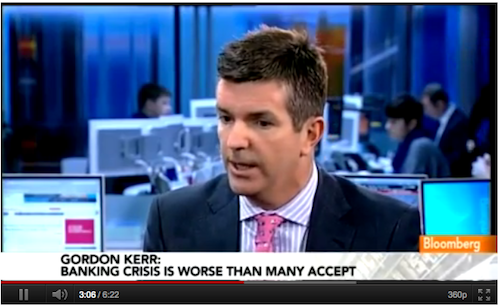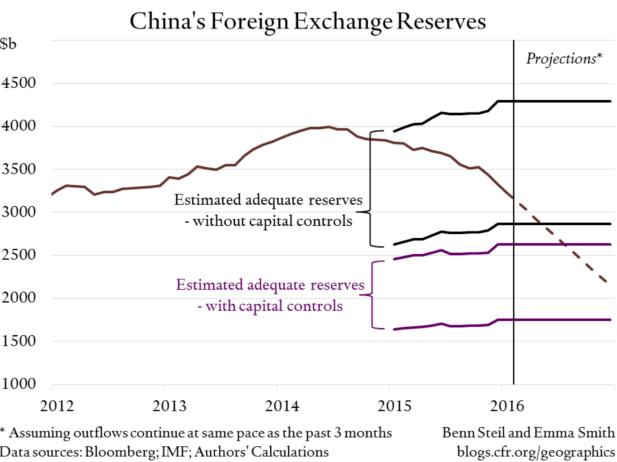Matt O’Brien — the anti-gold standard columnist ofThe Washington Post — at last has struck back at Ted Cruz for his advocacy for a “rules-based monetary supply, ideally tied to gold.” O’Brien’s reactionary blast was fully expected and somewhat overdue.
As I wrote in my Forbes.com column last November 1:
We know that Sen. Cruz struck gold from the reaction [to his call for the gold standard]. Immediately the Empire — which is to say the left — struck back. Soon the Sith Lords at the New York Times and Washington Post — hello Paul Krugman, hello Matt O’Brien! — will launch their TIE fighters against Jedi Master Cruz as his X-Wing nears the Death Star, which Cruz has called a “Star Chamber,” the Fed.
On February 23rd, O’Brien published a WaPo column: “This might be Ted Cruz’s worst idea.” Therein, with characteristic wit and élan, he attacks Cruz for gold standard advocacy:
Now, it usually only afflicts people wearing bowties…
This characterization of gold standard proponents (hello Larry Parks!) is delightful. Full disclosure: I myself only wear a bow tie when wearing black tie. That said, point well taken! Alas, though, O’Brien, an often bright (and sometimes even brilliant) analyst is an obsessive anti-gold standard denier which occludes his usual good judgment.
O’Brien’s column’s first indictment of the gold standard is founded on the volatility of the price of gold. Of course gold, as a demonetized commodity, is volatile. This is completely irrelevant, and even antithetical, to how gold (or, to be more precise, the dollar) behaved, and would behave, under the classical gold standard.
O’Brien:
The gold standard isn’t even a solution in search of a problem. It’s a problem in search of a solution. And the one that people found 80 years ago was just getting rid of it. Why is it such a disaster? Well, it’s not only that it’d make prices bounce around a lot more from year to year than they do now. It’s that it’d also make the bad times worse.
“Never let facts stand in the way of a good story.” More research by O’Brien would have shown decisively that under the gold standard there was a reasonably gentle, organic, fluctuation of prices, leading over time to a stable long term price level. Organic resilience of prices is the better characterization than “stability,” and is a good thing.
Prices certainly did not “bounce around a lot more from year to year than they do now” — except under extraordinary circumstances such as war. Currently we have seen Brent Crude, due to overly restrictive Fed policy, implode from $110/bbl to $34/bbl in only two years. The gold standard would not have permitted this. O’Brien simply is driving in one of his rare blind spots here.
Yes, the “gold standard” occasionally has proved pernicious. That always was through mismanagement rather than through the system itself.
When Churchill caved in to the Bank of England in 1925 by restoring the gold parity at pre-war levels, the ensuing deflation caused a almost million men to lose their jobs, precipitating a general strike, and banishing Churchill into the political wilderness for a decade. Winston considered it his greatest blunder. He, almost assuredly, was correct.
Going back a century before this, Andrew Jackson’s misguided war on the Second Bank of the United States (the Fed of its day), and his misguided monetary policies, precipitated the Panic of 1837 and the ensuing and long depression.
As I elsewhere have written:
In 1836, Jackson issued the Specie Circular, an executive order requiring gold and silver be used for the purchase of government lands after August 15, 1836. This precipitated severe monetary contraction, and a series of banking collapses leading to the Panic of 1837 and an ensuing depression which lingered for over five years. … According to historian Reginald Charles McGrane, in The Panic of 1837: Some Financial Problems of the Jacksonian Era (University of Chicago Press, 1924; First Phoenix Edition 1965) …
That said, mismanagement of the gold standard is by no means the same as a well-managed classical gold standard. And it would be welcome if thinkers like Matt O’Brien would engage with the various challenges attendant to the good management of the gold standard.
O’Brien then falls into the trap of what I have called “The Eichengreen Fallacy,” implying an attribution of the Great Depression to gold. (A common error, but the gold standard had been out of commission for well over a decade before Black Monday 1929.) O’Brien writes that the gold standard would send prices up…
before making them crash more than they even did during the Great Depression. (Falling prices might sound like a good thing, but they’re not because they can make wages fall at the same time that debts don’t, pushing more people into default).
I heartily agree with O’Brien’s indictment of deflation. Yet as I have written about the “Eichengreen Fallacy” — the fallacy that the classical gold standard induced, or at least materially contributed to, the Great Depression — into which he falls:
The gold standard got a bad reputation after the Great Depression, when it was seen as contributing to worldwide deflation. Kurt Schuler points out that the interwar gold standard didn’t follow the rules of the game, which is true.
I went on to observe, in the follow-on column:
Nor let pass unnoticed the Bank of England’s 2011 Financial Stability Paper No. 13 assessing the long term performance of the Federal Reserve Note standard and assessing its real outcomes — in every category reviewed, including job creation, economic growth, and inflation — to have proven itself, over 40 years, as deeply inferior in practice to the gold and even gold-exchange standards.
If O’Brien wishes responsibly to re-litigate the gold standard, he really must make his more customary, high integrity efforts to come to terms with Financial Stability Paper No. 13 rather than reverting to weak arguments, such as his reflexive, but callow, reference to:
… why none of the economists in the University of Chicago’s ideologically diverse expert panel think that the gold standard would be better than what we have now. And that’s putting it politely.
Academic fads … and manias … come and go. Academe currently is gripped by an insupportable infatuation with the Fed and the “Federal Reserve Note standard.” As I previously wrote at The Pulse about Cruz’s astute gold standard advocacy:
Ted Cruz is campaigning on the gold standard. He is smart to do so.
In Forbes.com, commentator Nathan Lewis notes that notwithstanding the claim that there is an elite academic economic consensus against the gold standard, the reality is far different:
Lewis:
“There is far less disagreement among scholars, however, on the question of [monetary] regime outcomes. One is struck by the near consensus in the historiography on the gold standard that the period [1880-1914] produced international regime outcomes which were highly desirable. Kenwood and Lougheed (1983) state that ‘one cannot help being impressed by the relatively smooth functioning of the nineteenth-century gold standard.’ They add that its external adjustment mechanism ‘worked with a higher degree of efficiency than that of any subsequent international system.’ Ford (1989) calls it ‘a system more stable perhaps than anything seen since.’ Cohen (1977) sees it as an international monetary regime that marks a ‘Golden Age’ in the history of monetary relations. He emphasizes how ‘enormously successful’ it was ‘in reconciling tensions between economic and political values.’ Beyen (1949) underscores the extent to which it has become perceived as ‘one of the world’s most prosperous and “normal” periods.’ Cleveland (1976) offers extensive praise of the relative performance of this regime, calling it a period of unmatched ‘harmony’ in monetary relations. Keynes (1931) noted that ‘the remarkable feature of this long period was the relative stability of the price level.’ Triffin (1964) points out the gold standard ‘provided a remarkably efficient mechanism of mutual adjustment of national monetary and credit policies to one another.’ Maier (1978) calls it a ‘smoothly running’ system. Strange (1988) refers to it as ‘an island of relative order and stability.’ Yeager (1976) stresses how the desirable regime outcomes of the gold standard imparted a vision on monetary relations of the period as the ‘good old days’: something long gone but venerated nonetheless.
Cruz’s support for the gold standard has excellent academic, as well as political, grounding.
Let’s get two things straight.
I have high regard for most of Matt O’Brien’s work. He’s a very accomplished, high integrity journalist, one who — outside his uncharacteristic obsessive, reflexive, and obtuse opposition to the classical gold standard — consistently is insightful, relevant, and interesting. The Washington Post is lucky to have him.
Also, I have high regard for Sen. Ted Cruz — especially for his advocacy of the gold standard.
My two stands are not mutually exclusive. As to O’Brien, the divine Horace once wrote: Bonus dormitat Homerus. “Even Homer nods.” Matt O’Brien, driving in his blind spot, just happens to get the gold standard dead, and demonstrably, wrong. It consistently has proven an important driver of equitable prosperity.
Sen. Ted Cruz, in offering the gold standard as a key plank in his fine equitable prosperity agenda, gets it exactly right. So thank you Sen. Cruz. And onward to a Golden Age.
Ralph Benko, internationally published weekly columnist, co-author of The 21st Century Gold Standard, lead co-editor of the Gerald Malsbary translation from Latin to English of Copernicus’s Essay on Money, is American Principles Project’s Senior Advisor, Economics.



